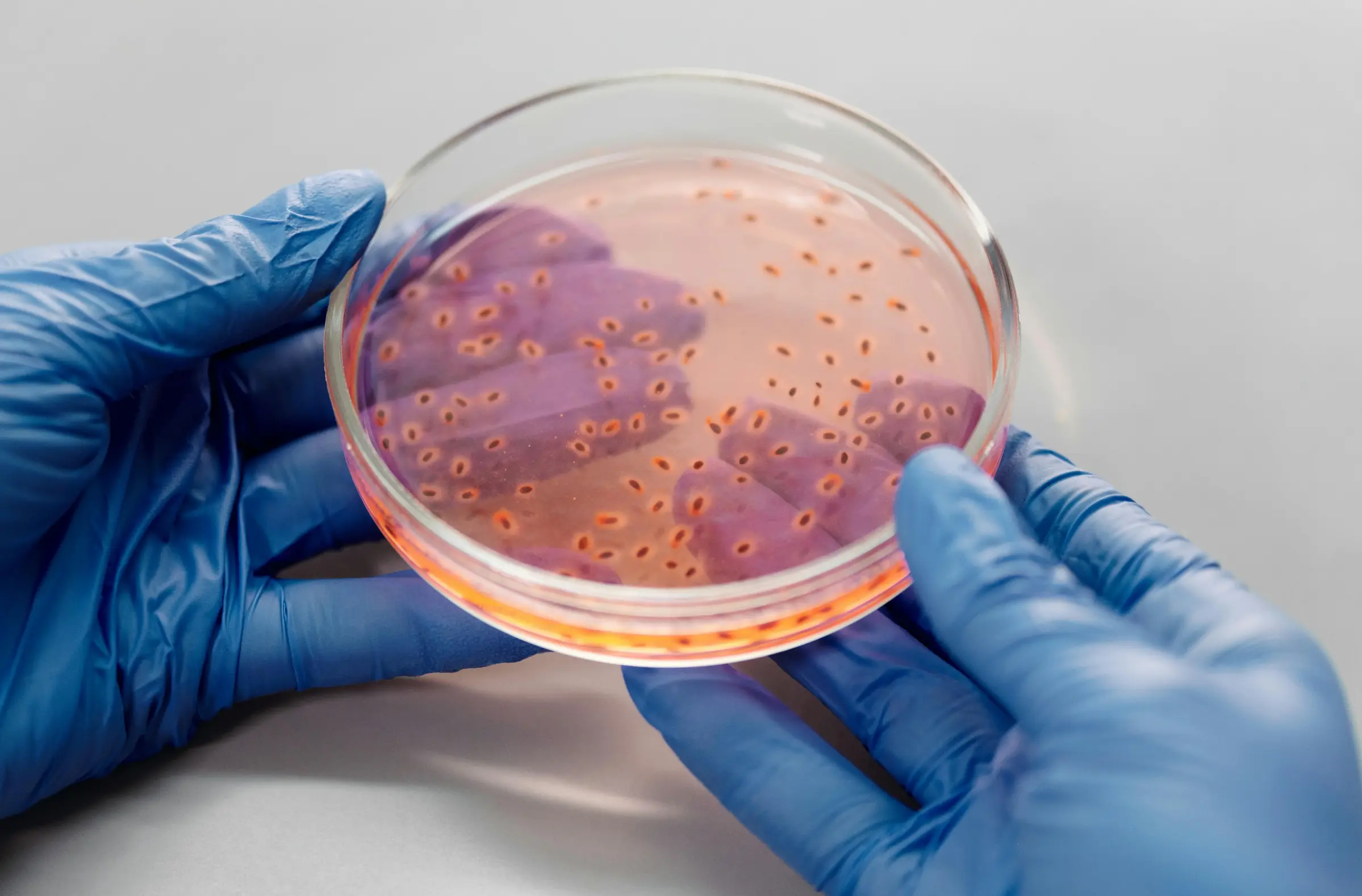Superboost for the immune system: Probiotics, vitamin C and zinc in collaboration
Do you want to stay healthy all year round? Give your immune system the support it needs with the help of probiotics, vitamin C and zinc. Here you will find out why this particular trio is so effective, how they work together and how you can easily add them to your everyday life.

Introduction
A strong immune system relies on balance, proper nutrition and smart choices.
The combination of probiotics, vitamin C and zinc gives the body three powerful tools that work together to strengthen the defenses against infections.
These substances support the functioning of both the intestine and the immune system in different ways.
By incorporating these nutrients into everyday life, you can give your health an extra boost, especially during periods when the immune system needs to work harder.
Learn how these three substances work together and how you can easily start supporting your immune system yourself.
Therefore, the body needs a strong immune system
The body's immune system is your built-in protective wall.
It works quietly every day to resist viruses, bacteria and other foreign organisms that can make you sick.
Without a strong immune system, the body becomes more vulnerable to infections and inflammations, affecting both your energy and quality of life.
A healthy immune system makes it possible to live an active and free life, whether in the middle of the flu season or during the year when allergies can interfere with everyday life.
The main functions of the immune system
The immune system consists of many different parts that work together through:
- Barriers such as skin and mucous membranes, which stop intruders even before they have time to enter the body.
- White blood cells that patrol in the bloodstream and quickly attack bacteria and viruses.
- Signal Substances which controls the work of cells and ensures that the immune system responds correctly to threats.
- Memory cells that remembers past infections and makes the body faster and stronger against the same attacker the next time.
Together, these parts create an advanced system of protection and recovery.
When you get an ulcer, catch a cold, or are exposed to stress, the immune system is there defending you.
External and internal factors affecting immunity
The immune system is influenced not only by innate genes, but also by how you live and what you expose your body to.
Some common factors:
- Diet “A nutritious diet with lots of vegetables, fruit, fibre and good fats gives the immune system the building blocks to function.
- Sleep Adequate rest helps the body repair and strengthen its defenses. Lack of sleep lowers the immune system.
- Stress “Prolonged stress disrupts balance and makes it harder for the body to defend itself.
- Age “Over the years, the body's defenses change, which can make us more susceptible to disease.
- Physical activity “Regular movement increases circulation and supports the immune system cells to reach out into the body.
- Smoking and alcohol “These habits can inhibit both the barriers in the body and the internal defense mechanisms.
By understanding the factors that affect us, we can give the immune system the right conditions to withstand the challenges of everyday life.
A strong immune system is not built overnight but every choice we make affects balance and strength in the long run.
Probiotics, vitamin C and zinc — triple support for the immune system
When the body is challenged by bacteria and viruses, we want a defense that works on multiple fronts.
Probiotics, vitamin C and zinc are nutrients that strengthen various parts of the immune system.
Together, they create a stable foundation for your health. Below you'll see how each one contributes, and what happens when they work together.
Probiotics: This is how beneficial bacteria support health
The intestine is the home base for a large part of the immune system.
There live several billion microorganisms, often called the intestinal flora.
When the balance is good, the beneficial bacteria help keep disease-causing microbes away and support the body's defenses.
- Probiotics are live lactic acid bacteria that promote a good intestinal flora.
- A stable intestinal flora lowers the risk of inflammation.
- Probiotics help train the cells and signaling substances of the immune system.
An unbalanced gut flora can give you more infections, poorer nutrient uptake, and increased sensitivity to external threats.
That's why research shows that probiotics -- found in yogurt, sauerkraut and supplements -- can strengthen resilience, especially during periods of stress or antibiotic treatment.
Vitamin C: The antioxidant that protects and repairs
Vitamin C is known as the body's protector against free radicals -- substances that can damage cells as the immune system fights invaders.
But vitamin C does more than that:
- It supports the production and function of white blood cells.
- It accelerates the healing and repair of mucous membranes of the mouth, nose and throat.
- It improves the body's ability to absorb iron from plant-based foods, which is important for the immune system.
Proven effects? Several studies show that people with adequate levels of vitamin C catch colds less often and recover faster.
Lacking vitamin C, on the other hand, the body quickly becomes noticeable through fatigue, poorer wound healing and an increased risk of infection.
The best sources of vitamin C are:
- Citrus fruits (orange, grapefruit, lemon)
- Kiwi
- Peppers and broccoli
- Strawberries and black currants
By eating these foods daily, you get a natural and effective support against infections.
Zinc: The mineral with many roles in the body's defense system
Zinc is needed in small amounts, but affects the protective mechanisms of the entire body:
- It participates in the formation of antibodies.
- It is needed to heal wounds and maintain healthy mucous membranes.
- It helps the cells of the immune system to multiply and function normally.
If you are deficient in zinc, you get sick more easily, wounds heal more slowly, and the body reacts weaker to vaccinations.
Early signs of zinc deficiency include impaired smell and taste, skin complaints and an increased risk of infection.
Good food sources of zinc are:
- Oysters and other seafood
- Nuts, especially cashew and Brazil nuts
- Meat and Eggs
- Legumes (beans, lentils, chickpeas)
- Whole grain products
Varying the food is the best way to ensure enough zinc.
Nutrient interaction — is the combo stronger?
Can the combination of probiotics, vitamin C and zinc provide better protection than individually? Recent research suggests that there is enhanced support when several factors interact.
- Probiotics can improve the absorption of both vitamin C and zinc by creating a more well-functioning intestinal environment.
- Vitamin C and zinc together promote the repair of mucous membranes, which is the first barrier against viruses and bacteria.
- Together, these substances reduce inflammation and promote recovery after an infection.
At the same time, it is important not to go to exaggeration. Overdosing on vitamin C and zinc can lead to side effects such as stomach upset or impact on the copper balance in the body.
If you are unsure about dosage, always consult a dietitian or doctor, especially if you are taking supplements.
In summary, studies clearly show that a balanced diet with probiotics, vitamin C and zinc can strengthen the body's defenses better than if you bet on just one of the nutrients.
The right combination in your diet can give you a stronger immune system — natural and proven.
Summary
The combination of probiotics, vitamin C and zinc provides extra strong protection for the immune system because they work together and enhance each other's effects against infections and inflammation.
When you're overhauling your health and looking to make simple but effective adjustments, the trio of probiotics, vitamin C, and zinc can make a big difference.
These substances have been shown in studies to strengthen the body's defenses against both everyday viruses and more stubborn infections.
By adding them to your diet, you will have a more resilient immune system and less risk of getting sick when the environment is filled with colds and flu.
You don't need to replace your entire diet or invest in expensive supplements but can start right away with a few simple changes.
Adding natural sources of probiotics, vitamin C and zinc is a smart bet.
You also get many other healthy nutrients and a more even blood sugar, which further benefits the body's own protective mechanisms.
When the body gets the right building blocks through food or supplements, not only does the immune system work better — you also feel more energized, recover faster, and cope better with stress and illness.
This trio is therefore a great choice for those who want to give your health a sustainable boost.
Reference list
- Food Administration. Vitamin C. Updated 2022. Available: https://www.livsmedelsverket.se
- Food Administration. Zinc. Updated 2022. Available: https://www.livsmedelsverket.se
- 1177 The Care Guide. The immune system — that's how it works. Available: https://www.1177.se
- the European Food Safety Authority (EFSA) Dietary Reference Values for Vitamin C and Zinc. Available: https://www.efsa.europa.eu
- Hemilä H. Vitamin C and Infections. Nutrients. 2017; 9 (4) :339. doi:10.3390/nu9040339
- Jayawardena R, c.s.. Probiotics and immune health: A review of functional foods. Nutrients. 2020; 12 (3) :792. doi:10.3390/nu12030792
- Prasad AS. Zinc in Human Health: The Effect of Zinc on Immune Cells. Molecular Medicine. 2008 Mar-Apr; 14 (5-6) :353-7.
- Gombart AF, Pierre A, Maggini S. A Review of Micronutrients and the Immune System. Nutrients. 2020; 12 (1) :236. doi:10.3390/nu12010236
- Rondanelli M, c.s.. Self-care for common colds: The pivotal role of vitamin C, vitamin D, zinc, and Echinacea. Evidence-Based Complementary and Alternative Medicine. 2018:1—36. doi:10.1155/2018/5813095
- Harvard T.H. Chan School of Public Health. The Nutrition Source: Vitamin C. Available: https://www.hsph.harvard.edu/
- Harvard T.H. Chan School of Public Health. The source of nutrition: Zinc. Available: https://www.hsph.harvard.edu/
- World Health Organization (WHO). Vitamins and minerals: a brief guide. Available: https://www.who.int











